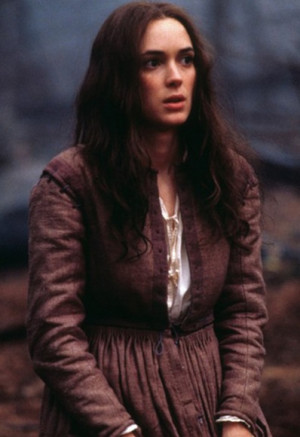

Initially in the play in Abigail is accused by Betty of witchcraft ‘You drank a charm to kill John Proctor’s wife! You drank a charm to kill Goody Proctor.’ Her terrible nature and of nefarious behavior becomes immediately evident as she threatens the other girls, ‘Let either of you breathe a word, or edge of a word, about the other things, and I will come to you… I will bring a pointy reckoning that will shudder you!… I can make you wish you had never seen the sun go down.’ Abigail’s actions and various threats not only intimidate the girls and force them to cooperate with her but they also lead to the deaths of nineteen innocent civilians later in the play.įurther, in the play, Abigail once again shows her dark and distrusting side as she claims to Paris, ‘There be no blush about my name…. This could be the main factor in her manipulative nature.

How Abigail acts, can be seen as a result of the environment she grew up in where everyone around her was toxic, self-absorbent and only cared about their reputation. Defining that there was no margin for mistakes, anyone suspicious of witchcraft would be hanged. To the best of their knowledge the American forest was the last place on earth that was not paying homage to God.’ Puritans where everything was strictly controlled and religious. They were in the time where the ‘Salem folk believed that the virgin forest was the Devil’s last preserve, his home base and the citadel of his final stand. The context in which the play is set is important to understand Abigail’s intentions and motivations. While Miller cleverly hints that she may be in fact be a victim of a Puritan Society at times, there is never enough to see her as a real victim Through his use of stage directions, dialogues and his characterization of Abigail he manages to evoke sympathy for her, perhaps showing that she was not always the complete villain we see her as. She is responsible for many deaths throughout the play, in fact she could have stopped the hysteria and ensuing madness many times if she just admitted the truth but she doesn’t, hence, cementing her place as the ultimate villain Any attempt to see her as a victim at the beginning of the play after the first innocent person is hanged but is absurd. Miller continues to sway us to view Abigail as a villainous character throughout the play.

She is exhibited as a skillful liar, manipulative, dishonest someone who is willing to go to great lengths to protect herself. From the beginning of the play, Miller unquestionably presents Abigail as the villain. In the play, ‘The Crucible’ Miller’s writing steers us, the audience, in a way that initially inclines us to believe she is presented as a villain.


 0 kommentar(er)
0 kommentar(er)
